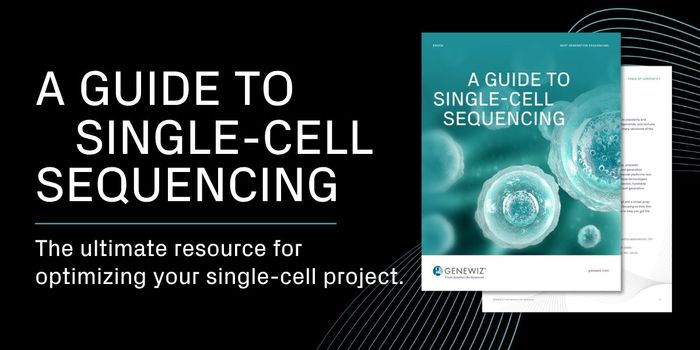Cell Adhesion Molecules in Immune and Cancer Therapy
Introduction
The immune system plays a dual role in inflammation and cancer development. Immune system effector cells rapidly recognize and kill malignant cells; meanwhile, immune system-mediated inflammation regulates various cell functions, suppresses the antitumor response, and influences subsequent treatment[1].
Cell adhesion molecules act in the form of receptor-ligand binding. They are the foundation of critical physiological and pathological processes such as immune response, inflammation, coagulation, tumor metastasis, and wound healing. Cell adhesion molecules are classified into four families according to their structural characteristics: integrins, the immunoglobulin superfamily (IgSF), cadherins, and selectins[2]. Cadherins and selectins are calcium-dependent, while integrins and IgSF CAMs are not. Integrins are heterodimer receptors that mediate interactions between the cytoskeleton and the extracellular matrix[3]. IgSF is a large protein superfamily involved in the binding and recognition processes. Selectins have three family members, L-selectin, P-selectin, and E-selectin. Cadherins are key regulators of tissue integrity and selective cellular aggregation and rearrangement during development[4]. The structural and functional properties of the four main cell adhesion molecules are listed in Table 1.
Table 1. Functional Properties of the Four Cell Adhesion Molecule Families
CAM Role in the Immune Response
CAMs are crucial components of active T cells that mediate inflammation. In patients with leukocyte adhesion deficiency type I (LAD-I), β2 integrin expression is decreased or absent in leukocytes. Integrins are expressed, but dysfunctional, in patients with leukocyte adhesion deficiency type III (LAD-III). These patients’ symptoms resemble those of patients with LAD-1. Integrins and their cytoplasmic regulators are essential inflammation regulators[5,6].
Cell adhesion molecules are also critical immune cell interaction mediators. For example, LFA-1 provides costimulatory signals to T cells and increases IL-2 gene expression[7]. LFA-1 is essential for Th1 / Th2 polarization, the development of Tregs and follicular T cells, and memory T cell generation[8]. Cell adhesion molecules are important T cell activators that help protect the host from infection.
Expression of CAMs Affect Tumor-Infiltration T cell
Tumor-specific antigens are identified by T cells and play a vital role in the antitumor immune response. A high CD8+ T cells/Treg ratio and CD8+ T cell infiltration are prognostically important in human malignancies[9]. Nevertheless, T cells are unable to infiltrate tumor tissue; this creates significant obstacles for immunotherapy-based cancer treatments[10]. Several studies found that tumor-infiltration T cells are influenced by CAM expression. ICAM-1 deletion and blockade reduced CD8+ T cell infiltration in melanoma (B16-OVA) and colon cancer (CT26). Thus, ICAM-1 expression affects T cell tumor infiltration[11]. Because of αE on CD8+ T cell-specific binding of E-cadherin expressed on epithelial cancer cells, α E + CD8+ T cells readily accumulate in tumors in humanized mouse breast cancer models.
Different cancers [melanoma, glioblastoma, Merkel cell carcinoma, and squamous cell carcinoma (SCC)] have different correlation levels between T cell infiltration and CAMs. When using TLR-7 agonist treatment in patients with SCC, tumor vessels upregulate E-selectin expression. This produces significant regression in the tumor and Treg frequency[1].
Anti-Tumor Therapy Targeting Cell Adhesion Molecules
As a class of transmembrane glycoproteins on the cell surface, cell adhesion molecules are closely associated with tumorigenesis, invasion, and metastasis. Studies indicate integrins are potentially valuable cancer treatment targets. Integrins αV and β1 are highly expressed in malignancies. In preclinical mouse models, integrins αV and β1 antagonists inhibit tumor growth. Various clinical trials have focused on integrins for cancer treatment. In a recent phase II clinical trial, progress-free survival (PFS) and overall survival (OS) decreased following administration of intetumumab (CNTO 95), an anti-αV integrin human antibody, compared to placebo[12]. Combining integrins with other immunotherapies could improve clinical outcomes. For example, combining the Fc fusion protein—which contains an Fc domain and RGD-binding integrins—with anti-PD-L1 immunotherapy promotes tumor progression and enhances antitumor immunity[13]. A cancer treatment that included the angiogenesis inhibitor anginex significantly upregulated the expression of VCAM-1 and E-selectin in tumor vascular endothelial cells. These activities inhibited tumor growth in a mouse model[14]. Some studies examined the clinical significance of E-cadherin relative to breast cancer invasion and metastasis. E-cadherin is expressed in normal breast tissue; low E-cadherin expression is associated with lymph node metastasis in patients with aggressive breast cancer. Patients with low expression also had a worse prognosis than those with high expression. In addition, LFA-1-mediated tumor cell adhesion can be blocked without affecting the immune response by using bispecific antibodies that target LFA-1 and specific antigens[15].
Adhesion Molecules Research Reagents
To support research into cell adhesion molecules and their role in various cancers, Sino Biological offers a comprehensive selection of antibodies for use in FCM, IHC, IF, ELISA, and WB (Figure 1). Additional offerings include recombinant proteins, ELISA Kits, and more. Various methods have validated these high-quality reagents, which provide consistent and reproducible results (Table 2). Please click here to view all the related molecules/targets and their research reagents.
Figure 1. Featured Products including ITGAV, VCAM1, and N-Cadherin
Table 2. Recommended Cell Adhesion Molecule Proteins
Conclusion
Cell adhesion molecules significantly contribute to the immune response and anti-immunity. These molecules additionally mediate essential functions in cell activation, proliferation, and tumor growth during tumor treatment.
Over the past decade, studies of cancer immunotherapy, immune checkpoint blockades, and CAR T cells have ushered in new treatments for various malignancies. Integrins are promising new additions to cancer therapy. Unfortunately, clinical trials to date have shown mixed results and low therapeutic efficacy. Despite this, integrins remain an area of considerable interest, and examinations into their use as treatment targets continue[16].
References
[1] doi: 10.3389/fimmu.2019.01078
[2] doi: 10.1007/s00018-014-1763-4
[3] doi: 10.1038/s41390-020-01177-9
[4] doi: 10.1111/j.1440-169X.2008.01002.x
[5] doi: 10.1016/j.coi.2009.07.005
[6] doi: 10.3389/fimmu.2019.00254
[7] doi: 10.4049/jimmunol.167.9.5193
[8] doi: 10.3389/fimmu.2018.00952
[9] doi: 10.1073/pnas.0509182102
[10] doi: 10.1158/0008-5472.CAN-08-228
[11] doi: 10.1172/JCI44952
[12] doi: 10.1093/annonc/mds505
[13] doi: 10.1084/jem.20160831
[14] doi: 10.1096/fj.05-4493com
[15] doi: 10.4049/jimmunol.170.5.2695
[16] doi: 10.3390/cancers11070978













